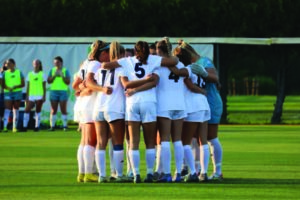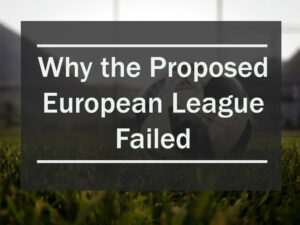Everyone has a different idea of what they think of when they think about sports. For some people it might be Sunday football games with the family, for others it might be going to the little league field to watch their brother or sister play and for others it could be betting money on the team they think will win. In some cases, sports are one of the things people associate with politics, based on various global events
One popular example of politics affecting sports involves the 1936 summer Olympics, which were held in Berlin, Germany after they won the bid for the games. At this point, Adolf Hitler was already in power and responsible for planning the buildings to be built for the Olympic games. Although the games were three years before the start of World War II, Hitler saw these games as a way to prove his concept of racial supremacy. Despite his attempt to forbid any athletes of Jewish descent from participating in the games, this did not happen. However, he was able to stop Germany’s Jewish athletes from participating.
Another lesser known sporting event that was plagued with politics was the 1986 World Cup game between Argentina and England. These two countries had a complicated relationship with previous soccer (European football) matches, with each meeting being at various levels of friendliness. For this game specifically, it meant a lot more, as there were political events that influenced the stakes of the match.
In 1982, Argentina and England were involved in a 10 week war called the Falklands war. The war started when Argentina invaded the islands, stating that they had control over them and wanted to claim them. Argentina was ultimately required to relinquish this claim, putting the Islands back into the control of the British.
Four years after this short war, Argentina and England met for the first time after the conflict in the world cup quarter-final stage at the 1986 FIFA World Cup held in Mexico. Argentina saw this as an opportunity to seek revenge after losing the islands and the war to England and it started out in their favor when their star player, Diego Maradona, scored a controversial goal on England, punching the ball into the net with his hand.
Maradona scored a second goal in the game, while England’s only score came from striker Gary Lineker. England lost this game 2-1, but this game only added fuel to the fire of the rivalry between the two teams. England felt that Maradona’s first goal should not have been legal and they were cheated out of the win, but for Argentina, this served as revenge for the loss of the Falklands war.
This rivalry continues to this day, with some matches being more friendly than others based on the circumstances and the stakes of the game, but the political implications of their meeting is clear in the 1986 game.
Having this sporting event in such a timely manner of political turmoil shows the influences politics can have on sports. The fact that Germany held the Olympics and tried to use them as a way to show their racial supremacy shows that sports have the ability to have political ramifications from the results and from the athleticism displayed. Similarly, both England and Argentina used sports to try and justify who was the “better” country after having been involved in a controversial war. In both the 1986 World Cup and the 1936 Summer Olympics, politics influenced the athletes who participated and the ulterior motives of the teams competing.







